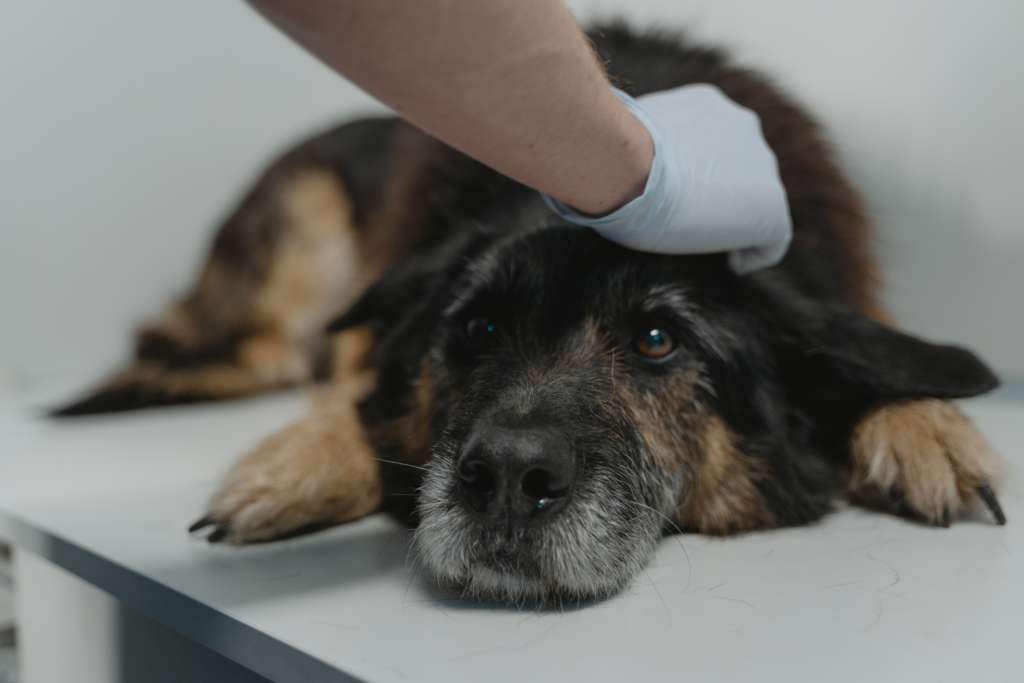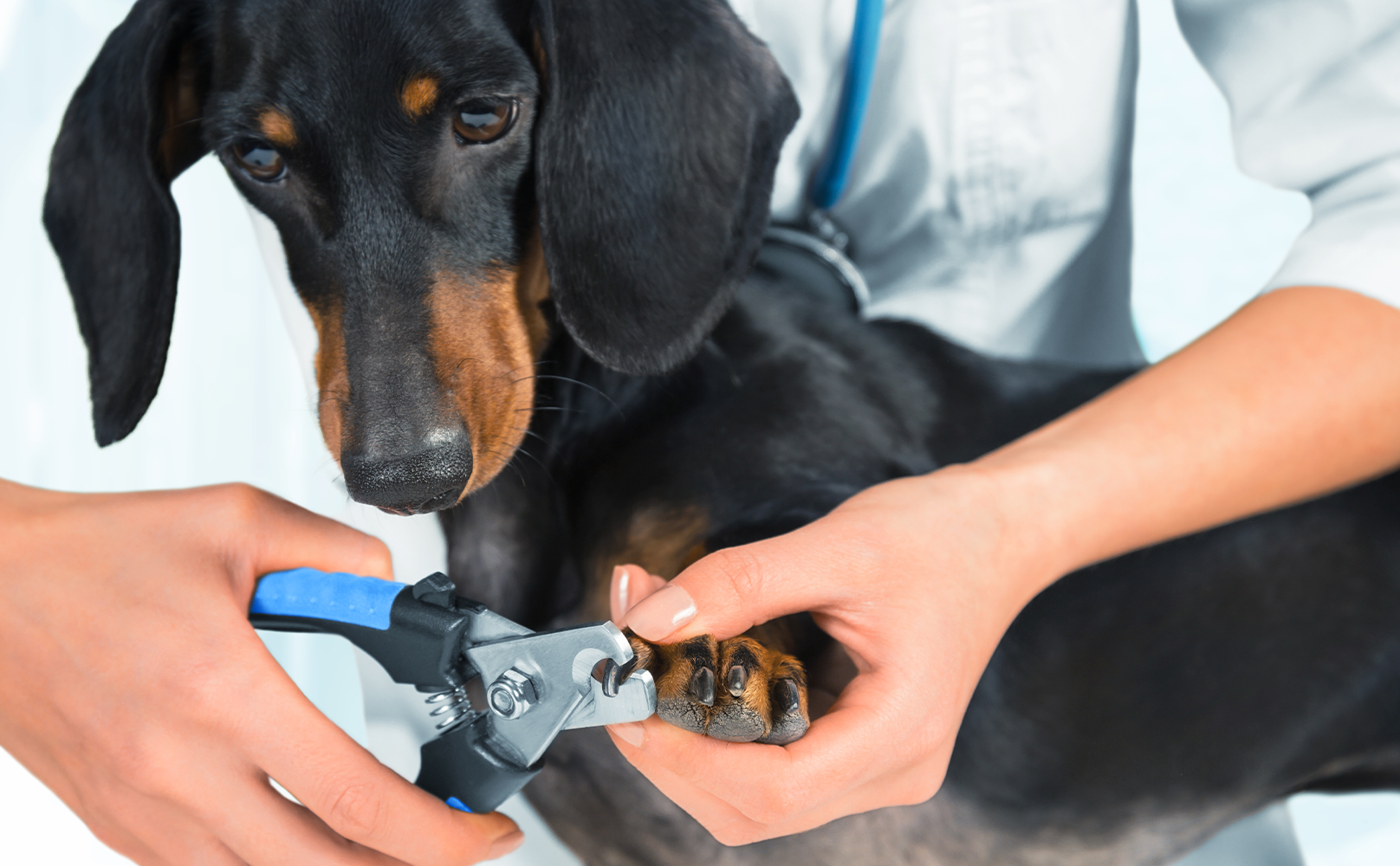Batman and The Joker. Outdoor weddings and rain. Sunglasses and the sun. There are many great opposing forces in this universe, and in the world of dogs none is more infamous than that of dog vs. grape. Sure, dog vs. cat seems the more obvious choice, but I have seen a lot of videos of them getting along and not one of a dog eating grapes.
Let’s jump right in, shall we?
Can Dogs Eat Grapes?
Dogs absolutely should not eat grapes. Why exactly? The science verdict is still out as to why grapes (and therefore raisins) are so toxic to our horizontal pals. It doesn’t matter the breed, the size, male or female, young or old—all dogs can be affected. What is known, however, is that even just one grape can be fatal. Yeah, fatal.


What happens with grape toxicosis?
Grape and raisin toxicosis is tricky, because there are still a lot of unknowns.
We DO know that for some dogs, ingestion of grapes or raisins can cause acute renal failure (that is, sudden kidney failure). If that failure cannot be reversed, it will result in death.
However, we DO NOT know the identity of the actual toxin (more on that later), nor do we know the toxic dose. To make matters more complicated, two dogs of the same weight may eat the same amount of grapes, and one may be fine while the other gets really sick. So, when a dog gets ahold of a grape, veterinarians and owners have to make big decisions based on some pretty major question marks (it’s definitely best to just avoid the situation entirely!).
What do we know about the toxin?
There are more questions than answers at this point, but there are a few things we do know.
- So far, the only confirmed reports of grape toxicosis are in dogs.
- Many known kidney toxins, such as fungi, pesticides, and heavy-metals, have been ruled out as possibilities.
- There is research to suggest that the toxin is in the flesh of the fruit and not the seed1.
- We do not know what the toxic dose is (i.e., how much can a dog eat per their bodyweight and still be OK?)
- At this point, grapeseed extract and grape pomace have not been linked to toxic effects (they seem to be OK).
What happens if a dog eats a grape or raisin?
The absolute best thing to do in this case is go to the vet and have them induce vomiting ASAP. If you can get those grapes out of the stomach, you have just decreased your dog’s “grape dose” by a lot!
After that, your veterinarian will recommend next steps based on your dog’s specific situation. These next steps will include monitoring (for example, repeated blood work and urinalysis to keep an eye on the kidneys) as well as treatment (for example, fluid therapy or activated charcoal). Because there is no specific diagnostic test, or treatment, for this toxin, the goal is to provide all the support to the kidneys that we can, dilute the toxin as much as we can, and monitor closely to detect the first signs of trouble as soon as they happen (if/when trouble does happen, your vet will kick everything into high gear to try and save those kidneys).
Because symptoms only arise after the kidneys are already in trouble, it really is best not to wait until your dog is acting sick. Waiting may decrease the chances of successful treatment if your dog is suffering from grape toxicosis. These symptoms can start within hours after eating grapes, but can sometimes take longer to show up. Vomiting is the one symptom that has happened in all reported cases of grape toxicity. Other symptoms can include (but are not limited to) diarrhea, inappetance, dehydration, abdominal pain, lethargy, changes in urine/thirst, and weakness. All of this can happen anywhere from a few hours to several days after eating grapes or raisins.


At the end of the day, Batman always wins. The rain stops. The sun sets. And in the battle of dog vs. grape, I have faith that the ancestors of wolves that prowled ancient earth can handle a few purple circles. But what about those other dark circles? Can dogs eat blueberries?
This article has been reviewed by Margo Hennet, DVM.
Margo Hennet, DVM, cVMA, and veterinarian at BARK is a canine nutrition, health, & wellness connoisseur. She has a combined 10 years of experience in clinical medicine, research, and education—that’s 70 dog years of know-how—and graduated from Colorado State University as a Doctor of Veterinary Medicine. She completed specialized training in internal medicine prior to working as a general practitioner in Colorado, has authored peer-reviewed publications and textbook chapters, holds certification in veterinary medical acupuncture, and is a member of the American Academy of Veterinary Nutrition and American Veterinary Medical Association.
Sources
1Ganiron F, Huynh I, Patel T, et al: “The toxicity of raisin extracts in a canine kidney model.” North American Congress of Clinical Toxicology Poster Session, Seattle, WA 2004.







